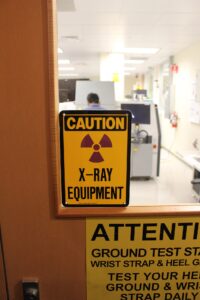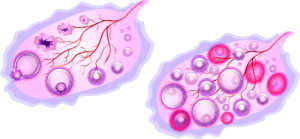 Treatment for infertility will depend on the underlying cause. Unfortunately, not all causes can be treated by surgery, medications, or both. Even if the suspected underlying cause of infertility has been treated, not all women will conceive. In about 10% to 15% of infertile couples, the cause is usually not found after a standard clinical and laboratory evaluation. This is term as unexplained infertility. Deciding what to do, if anything, when a fertility evaluation is completed may not be easy. Any treatment for conceiving is actually “maximizing fertility potential” rather than “curing infertility.” There is no guarantee that any of them will result in the successful birth of a baby. Ultimately, if conventional therapies do not achieve the desired pregnancy, then the last resort will be assisted reproductive technology (ART). This refers to procedures such as in vitro fertilization (IVF) and intracytoplasmic sperm injection (ICSI).
Treatment for infertility will depend on the underlying cause. Unfortunately, not all causes can be treated by surgery, medications, or both. Even if the suspected underlying cause of infertility has been treated, not all women will conceive. In about 10% to 15% of infertile couples, the cause is usually not found after a standard clinical and laboratory evaluation. This is term as unexplained infertility. Deciding what to do, if anything, when a fertility evaluation is completed may not be easy. Any treatment for conceiving is actually “maximizing fertility potential” rather than “curing infertility.” There is no guarantee that any of them will result in the successful birth of a baby. Ultimately, if conventional therapies do not achieve the desired pregnancy, then the last resort will be assisted reproductive technology (ART). This refers to procedures such as in vitro fertilization (IVF) and intracytoplasmic sperm injection (ICSI).
infertility
Infertility investigations
 The woman and her partner should be present at the initial evaluation for infertility. The doctor will obtain a full clinical history from the couple and then proceed on to a physical examination. The initial investigations that need to be performed will be based on these assessments. Sometimes, the cause of the infertility may be found at this visit. Further evaluation and clinic visits may be necessary for other couples. It may take several weeks. This is because some of the tests may have to be repeated for verification at different specific times in her menstrual cycle. The initial workup of a man usually can be done faster, because men have no monthly cycles and because there are fewer tests for men.
The woman and her partner should be present at the initial evaluation for infertility. The doctor will obtain a full clinical history from the couple and then proceed on to a physical examination. The initial investigations that need to be performed will be based on these assessments. Sometimes, the cause of the infertility may be found at this visit. Further evaluation and clinic visits may be necessary for other couples. It may take several weeks. This is because some of the tests may have to be repeated for verification at different specific times in her menstrual cycle. The initial workup of a man usually can be done faster, because men have no monthly cycles and because there are fewer tests for men.
COMMON INVESTIGATIONS IN FEMALE
Hysterosalpingogram (HSG)
 Hysterosalpingogram (HSG) is an x-ray examination that is used to evaluate the uterine cavity and to check for patency of the fallopian tubes (whether the tubes are blocked).
Hysterosalpingogram (HSG) is an x-ray examination that is used to evaluate the uterine cavity and to check for patency of the fallopian tubes (whether the tubes are blocked).
INDICATIONS (REASONS FOR PROCEDURE)
- Infertility (difficulty in conceiving).
- Confirm tubal and uterine abnormalities.
- Recurrent miscarriages.
- Follow-up to some surgical procedures.
CONTRA-INDICATIONS TO THE PROCEDURE
- Undiagnosed vaginal bleeding.
- Pelvic inflammatory disease (PID).
- Pregnancy.
- Recent curettage or active genital tract infection.
Polycystic Ovary Syndrome (PCOS)
 Polycystic ovary syndrome (PCOS) refers to a spectrum of clinical problems due to hormonal and metabolic imbalance, which can affect the reproductive and endocrine systems.
Polycystic ovary syndrome (PCOS) refers to a spectrum of clinical problems due to hormonal and metabolic imbalance, which can affect the reproductive and endocrine systems.
How Common?
PCOS affects 5-10% of all women of childbearing age regardless of race or nationality. It may begin during puberty and become more severe with time.

